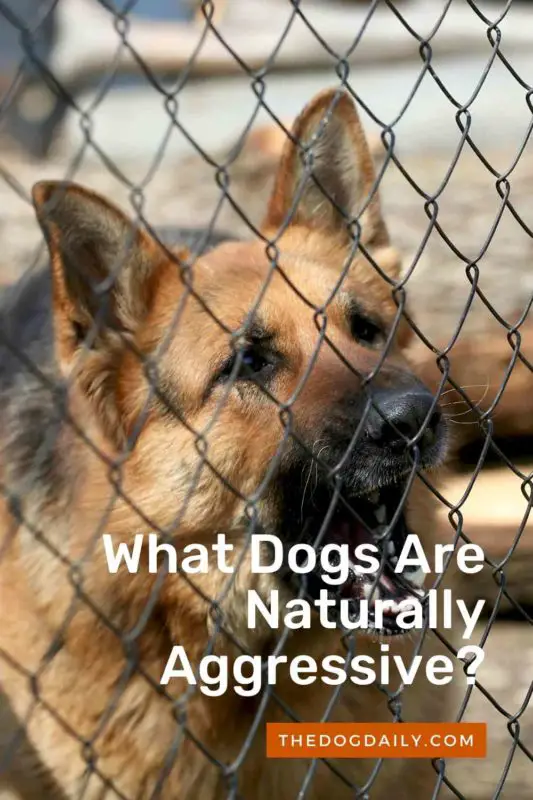Aggression Levels in Dogs
When Aleta Watson’s 1-year-old grandson, Xavier, tried to crawl on Aggie, her Golden Retriever, during Watson’s recent visit to Portland, Ore., there were no worries. The large, imposing dog got up and walked away, says Watson. “We love Golden Retrievers because they tend to be so mellow,” says Watson, 62, a writer based in Ben Lomond, Calif. “Aggie is our fourth purebred golden, and she’s easy-going. We’ve never seen any sign of aggression in her or our previous goldens.”
A recent study backs up Watson’s experiences with Golden Retrievers. Evaluating surveys of two groups of owners, researchers at the University of Pennsylvania’s Center for the Interaction of Animals and Society rated dog breeds on their aggression levels.
The study, accepted for publication in the journal Applied Animal Behaviour Science, found that goldens rate among the least aggressive breeds. But the study also offers somewhat unexpected conclusions when it comes to canine feistiness. You might be surprised to find where your dog’s breed ranks.
What is the Least Aggressive Dog Breed?
These breeds tend to be calmer and show the least amount of aggression towards humans: Golden Retrievers, Whippets, Labrador Retrievers, Beagles, Bulldogs, Bernese Mountain Dogs, Boxers, Greyhounds, Basset Hounds, Siberian Huskies, and Brittany Spaniels.
What is the Most Friendly Dog?
The Labrador Retriever is considered the friendliest dog breed for humans.
What is the Safest Dog to Have?
If you are looking for an excellent all-around family dog, some breeds are more suitable than others. Breeds such as Golden Retriever, Labrador Retriever, Poodle, Irish Setter, Border Collie, Bull Terrier, Beagle, and Bulldog are considered safe breeds as part of a family.
Environment and training play an integral role in a dog’s behavior. Even though these breeds are considered to have the right temperament for families, they can still react if pushed.
What is the Meanest Small Dog?
Using a survey called the C-BARQ (Canine Behavioral Assessment and Research Questionnaire), researchers from the University of Pennsylvania’s Center for the Interaction of Animals and Society collected results from both online respondents and a sampling of members of 11 breed clubs recognized by the American Kennel Club. Remember the saying, “It’s not the size of the dog in the fight, but the size of the fight in the dog”? The surveys found two small dog breeds, Chihuahuas and Dachshunds, rated high on aggression toward humans and other animals.
“Initially, I was quite surprised by how aggressive these smaller breeds came out,” says Dr. James Serpell, the study co-author and director of the Pennsylvania center. “In smaller dogs, I think we tolerate higher levels of aggressive behavior,” he says, adding, “the prospects of being seriously injured by a Chihuahua are small. Part of the problem with these little dogs is that they probably do live in terror a lot of the time because they are so small and surrounded by giants, both humans, and dogs.”
What Dogs are Naturally Aggressive?
Akitas and Pit Bull Terriers ranked high in aggressiveness toward other dogs, while Jack Russell Terriers, Australian Cattle Dogs, American Cocker Spaniels, and Beagles were noted for aggression toward humans.
What is the Most Aggressive Dog?
Chihuahua rated highly on aggression toward both humans and other animals.
“Interdog aggression is scarily high in some breeds,” says Dr. Serpell. “Close to 30 percent of Akitas, for example, had shown serious aggression toward other dogs in the recent past,” says Dr. Serpell. Indeed, says co-author Dr. Deborah Duffy, the amount of dog-versus-dog aggression reported by owners was alarming.
“What surprised us most was the percentage of owners reporting that their dog had bitten or tried to bite other dogs,” says Dr. Duffy. “When we think of canine aggression from a public health perspective, aggression toward humans is typically discussed. However, our study found that serious aggression among dogs is surprisingly common for some breeds. This high aggression level also presents a public health hazard because people can get bitten trying to separate dogs that are fighting.”
What Are the Top Three Most Aggressive Dogs?
Chihuahua and Dachshund both scored highly on aggression toward humans and other animals, while Akita ranked highly on aggressiveness toward other dogs.
What Are the 10 Deadliest Dogs?
According to Forbes, the Pit Bull accounts for around half of dog-related fatalities in the U.S., followed by the Rottweiler, Husky, German Shepherd, Bullmastiff, Wolf Hybrid, Chow Chow, Boxer, Doberman, and Akita.
Genetics likely plays a role in the aggressiveness of breeds such as the Akita, says Dr. Serpell. However, the researchers point out that positive attributes, such as loyalty, often balance these aggressive traits. Aggressive dogs, even the tiniest ones, tend to make terrific watchdogs, letting us know when strangers are around.
Nature or Nurture
Nagja Bamji says that her Dachshund, Ronny, is far from aggressive. Ronny gives other dogs a wide berth, loves kids, and recently backed off when a squirrel hissed at him, says Bamji, 46, a homemaker in Fremont, Calif. You also might find that your dog doesn’t fit the profile developed in this study.
“We do have breed differences; there is no question,” says Dr. Gail Clark, a canine behavioral psychologist based in Fort Collins, Colo. “But there are a tremendous amount of factors in dog behavior.”
She explains that environment and training, as well as breed, help determine how your dog behaves. For example, she says, the owners of little dogs tend to pick them up frequently in threatening situations. Perched high in their owners’ arms, the small dogs feel mighty brave. When the dogs return to the ground, they might feel defensive and threatened. How you perceive your dog’s breed, regardless of size, might influence how you train or handle your pal, thus affecting your canine’s long-term behavior, says Dr. Serpell.
Where you obtain your puppy can be another significant factor, says Dr. Serpell, who recommends finding a reputable breeder, visiting the breeder, and even meeting your pup’s parents. Dogs produced in puppy mills often have behavioral problems, he says. Puppies tend to be removed from their mothers and littermates too soon, and they don’t have enough positive human contact in their early weeks. Their mothers often are kept in highly stressful environments during their pregnancies, which likely has a longstanding impact on the puppies, says Dr. Serpell.
Can Aggression Be Trained Out Of A Dog?
Aggression is a behavior your dog exhibits as a reaction to a situation. Like all behaviors, aggression can also be corrected. An excellent place to start is to understand why your dog is behaving aggressively in the first place. For example, is your dog territorial, protective, possessive, fearful, or reacting for another reason? Another factor to consider is the health of your dog. Is there something medically wrong that is causing aggressive behavior in your dog?
Once you understand why your dog is behaving aggressively, then a professional dog trainer can help you formulate a plan to correct this behavior. Never punish your dog for being aggressive. Your dog will not understand why he is being punished and may become more aggressive as a result.
Why is My Dog Aggressive to Other Dogs?
There are a variety of reasons a dog behaves aggressively towards another dog. Providing there is no medical cause underlying the aggression, your dog may have been conditioned to react aggressively towards other dogs through not being:
- appropriately socialized as a puppy
- a traumatic encounter with another dog
- being part of a dogfighting operation
- or other abuse and neglect, for example
- Your dog could also be aggressive to protect his territory or social status.
Why is My Dog’s Aggression Getting Worse?
If your dog has never shown any aggressive behaviors previously and then begins to growl or bite, it may be a reaction to pain. It is essential to take your dog to your veterinarian to have any illness or injuries ruled out as a cause of aggression.
If your dog’s aggressive behavior is escalating and medical causes have been ruled out, there could be other factors. One of the most important factors is the owner, you. Your response to the situation has an enormous impact on how your dog behaves.
Aggression is a behavior that needs to be addressed and modified. By ignoring the aggression, you are telling your dog that you approve of its behavior. It is essential to accept the problem exists, understand what triggers your dog’s aggression, and implement a plan with the help of a professional trainer.
Other ways we humans can inflame the situation is by:
- inadvertently encouraging the aggressive behavior (by being inconsistent)
- not providing enough mental stimulation
- tensing up when near a trigger, punishing (which reinforces to the dog
- that what he is fearful of is also painful)
- yelling (effectively joining in)
Individuality Can Overcome Statistics
Dr. Serpell believes that the next step for researchers is to understand the factors contributing to individual dogs behaving aggressively. When it comes to this study, it’s important not to paint every dog with the same brush, he thinks. “The No. 1 thing we’d like you to take from the study is it’s based on breed averages,” says Dr. Serpell. “Branding a breed as dangerous or aggressive is inappropriate.
Within any breed, you’re going to find many, many individuals that are nice and well-tempered.”
If you’re interested in evaluating your dog’s behavior, you can still take the C-BARQ. The survey, which takes 10 to 15 minutes to complete, is located on the University of Pennsylvania’s School of Veterinary Medicine Website.
While aggression in breeds may be helpful as a guide, it is not accurate or entirely reliable to judge a dog’s characteristics. A more important predictor of aggression is to look at a dog’s temperament and behavioral history with both humans and other dogs. Ensure that the breed is a good fit for your lifestyle to reduce the likelihood of behavioral problems.
Article written by Author: Kim Boatman, and The Dog Daily Expert

